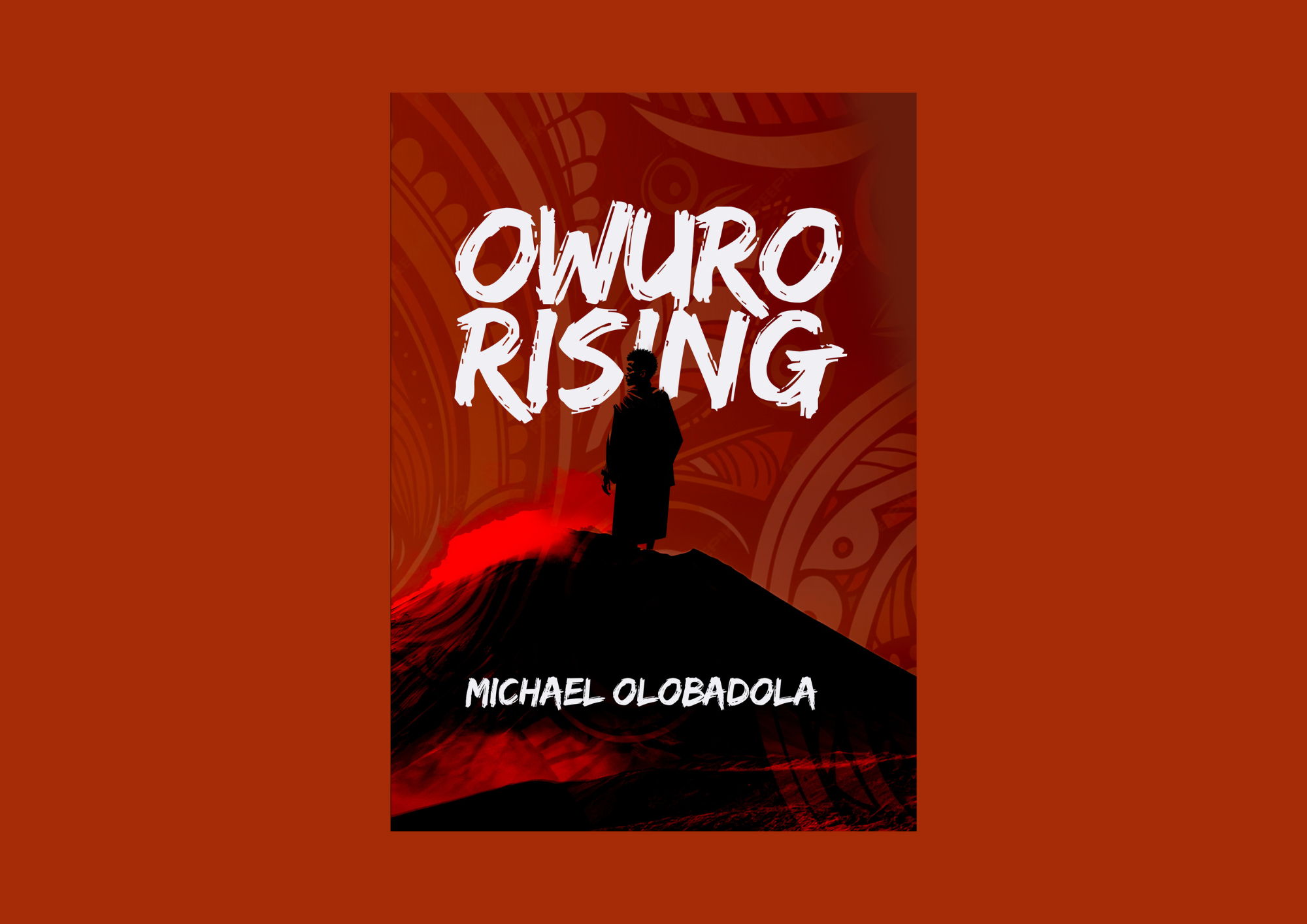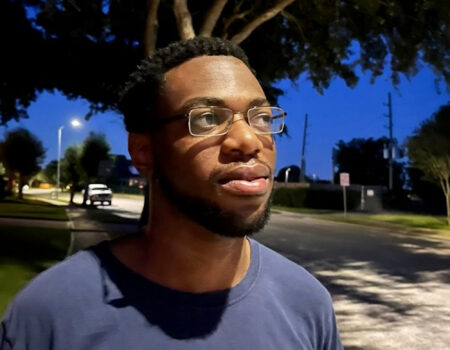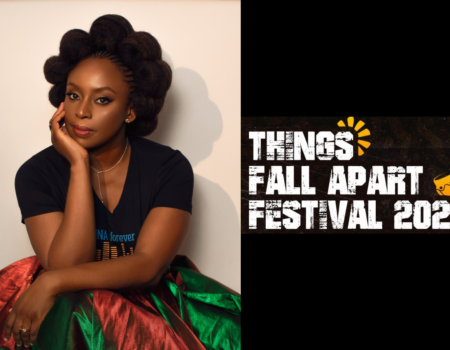Michael Olugbenga Olobadola’s Owuro Rising is an engaging speculative work of young adult fiction, the first in a projected trilogy. It is collaboratively published in Nigeria and the United Kingdom by SEVHAGE, Journal of African Youth Literature (JAY Lit) and the African & Black Creatives for Development (ABC4D). The work offers readers an ambitious tale where youthful struggles, spiritual mysteries, and communal tensions unfold within the imagined space of Owuro, a Nigerian town steeped in culture and secrecy. From the outset, the novel invites engagement through various character voices. Indeed, one discovers that the novel’s structure moves fluidly from one character’s point of view to another and allows for a panoramic view of Owuro’s layered society. There are seven chapters in the book. Each chapter comes with a title and is told from the point of view, and voice of a specific character.
The first voice readers come across is that of Emmanuel, a seventeen-year-old boy emerging from the abusive grip of Reverend Julius, a figure who symbolises both religious hypocrisy and the threat of unchecked spiritual power. The character’s introspective narration carries the tone of someone shaped by trauma yet yearning for freedom, and his encounters with both the generosity and complexities of figures like Detective Saheed reflect the dualities of protection and vulnerability often found in Nigerian communal life. Emmanuel’s narrative is marked by introspective musings and a philosophical tone that, while earnest, occasionally borders on the didactic. His reflections on his past, his cautious optimism for a new life under the care of Detective Saheed, and his efforts to navigate secondary school as a late entrant form a solid foundation for the novel’s exploration of identity and survival.
With Lola, the reader steps into the world of adolescent desire, guilt, and social ambition, layered with the mythical reality of her siren heritage. The author’s blending of myth and the modern school environment illustrates the porous boundaries in African storytelling traditions, where the sacred and the everyday frequently coexist. Although moments of emotional intensity, such as the dramatic collapse of Lola’s social standing during school rehearsals, verge on the melodramatic, this can also be read as true to the heightened stakes of adolescence, especially within societies where reputation carries significant weight.
Kenny’s narrative deepens the supernatural thread, grounding it in Yoruba cosmology through her witch identity and the struggle of her boyfriend Dada, possessed by Ojuju. The town’s secret councils, the covens, and the evocation of masquerade lore all speak to a cultural landscape where unseen forces shape the visible world. At this point, Owuro Rising draws more heavily on Yoruba cosmology and local spiritual traditions, introducing the notion of the Masquerade and the threat of cosmic forces embodied in Ojuju. The depiction of Kenny’s coven, her Grandwitch mentor, and the town’s Enlightened Council situates the narrative within a rich cultural and spiritual framework. Olobadola’s writing thus captures the African sense of the interconnectedness of the physical and spiritual realms, a worldview in which personal destinies are entwined with cosmic balances and ancestral expectations. The magical systems and mythic elements, while sometimes sketched in broad strokes rather than fully elaborated, evoke the oral traditions from which such stories often emerge.
The other voices one comes across are that of Demola Kilani, a wizard who had a relationship with Kenny’s mother; Sadiat, the Vice Chair of Owuro Local Government Council; Jerry, the boyfriend of Lola’s best friend turned nemesis; and Ty (Taiye), Kenny’s twin brother. Together, they bring diverse perspectives and tell the same story from different sides creating a more rounded narrative.
The novel’s style, marked by lively dialogue, mostly youthful slang, and codeswitching between English and Nigerianisms, strengthens its local colour and authenticity. The use of contemporary idioms and schoolyard banter not only locates the novel firmly within its Nigerian setting but also affirms the validity of African urban youth culture as literary terrain. There are points where exposition slows the narrative pace, especially where the characters’ internal reflections extend into lengthy philosophical musings, but this too mirrors a tradition in African literature where the personal is often in dialogue with the metaphysical. One notes generally that while the writing remains lively, yet the interweaving of personal dramas and cosmic threats occasionally results in tonal shifts that feel uneven.
What stands out most in Owuro Rising is its commitment to exploring how young people navigate layered identities, whether they are shaped by trauma, mythic inheritance, or the tensions of modernity and tradition. The work resonates with familiar concerns of postcolonial literature: the struggle for self-definition, the legacies of power (both spiritual and institutional), and the fragile hope for communal renewal. The comparisons to Salem and the suggestion of latent hysteria waiting to be triggered in Owuro subtly remind the reader of the fine line between order and chaos in societies negotiating between inherited beliefs and contemporary realities.
Olobadola’s Owuro is reminiscent of the “enchanted village” trope familiar to readers of postcolonial magical realism, yet it is not romanticised. Instead, the town’s beauty, its rivers, hills, and vibrant school life—is undercut by darker currents: patriarchal violence (embodied in Reverend Julius), betrayal among friends (as seen in Lola and Kiki’s arc), and the threat of communal hysteria (alluded to in comparisons with Salem). The novel’s engagement with performance, through the Moremi play subplot, adds a meta-theatrical layer, situating the characters within Yoruba heroic myths even as they perform them.
As the first part of a trilogy, Owuro Rising lays intriguing groundwork. Its narrative breadth, while ambitious, leaves certain threads open or lightly drawn, particularly in its treatment of the supernatural mechanics and the deeper socio-political structures of Owuro. Yet, this openness feels deliberate, echoing the serial storytelling modes common in African oral traditions where tales unfold over time, inviting audiences to journey with the teller. In this way, the novel’s limitations are perhaps better seen as spaces for expansion rather than deficiencies.
All said and done, Owuro Rising is an imaginative narrative that draws richly on African cultural contexts and storytelling traditions, offering a portrait of youth at the crossroads of the seen and unseen worlds. Indeed, one can say it is an imaginative, if at times uneven, fusion of postcolonial realism and speculative fiction. Its fusion of the quotidian with the magical, the personal with the communal, speaks to enduring questions about identity, power, and belonging in contemporary African society. The reader is left not with neat conclusions but with the sense of standing at the threshold of a larger tale, a tale that, like Owuro itself, holds secrets still to be revealed.
Soji Cole
Soji Cole is a multiple award-winning author, scholar, and Assistant Professor at St Mary’s University, Halifax, Nova Scotia, Canada. He is currently rounding off a second PhD program in Interdisciplinary Humanities at Brock University, Ontario Canada. He has been a double recipient of the Diversity Studies International Teaching and Scholarship Network Fellowship, with the University of Augsburg, and Carl Von Ossietzsky University, Oldenburg in Germany. He was a recipient of a Fulbright Research Scholarship at Kansas State University, Manhattan, USA. He also received a Pre-Doctoral Fellowship in Black Studies at Queens University, Ontario, Canada. He was a Guest Research Scholar at the Center for Research and Creative Exchange, University of Roehampton, UK. Amongst other prizes, he has won the [NLNG] Nigeria Prize for Literature; the Association of Nigerian Authors (ANA) Playwriting Prize; A winner of the International Federation for Theatre Research (IFTR/FIRT) New Scholars Prize, as well as a winner of the African Theatre Association (AfTA) Emerging Scholars Prize.


![[Featured Post] Aké 2025: Thirteen and Counting](https://jaylit.com/wp-content/uploads/2026/01/PHOTO-2025-12-23-01-39-53-450x350.jpg)

